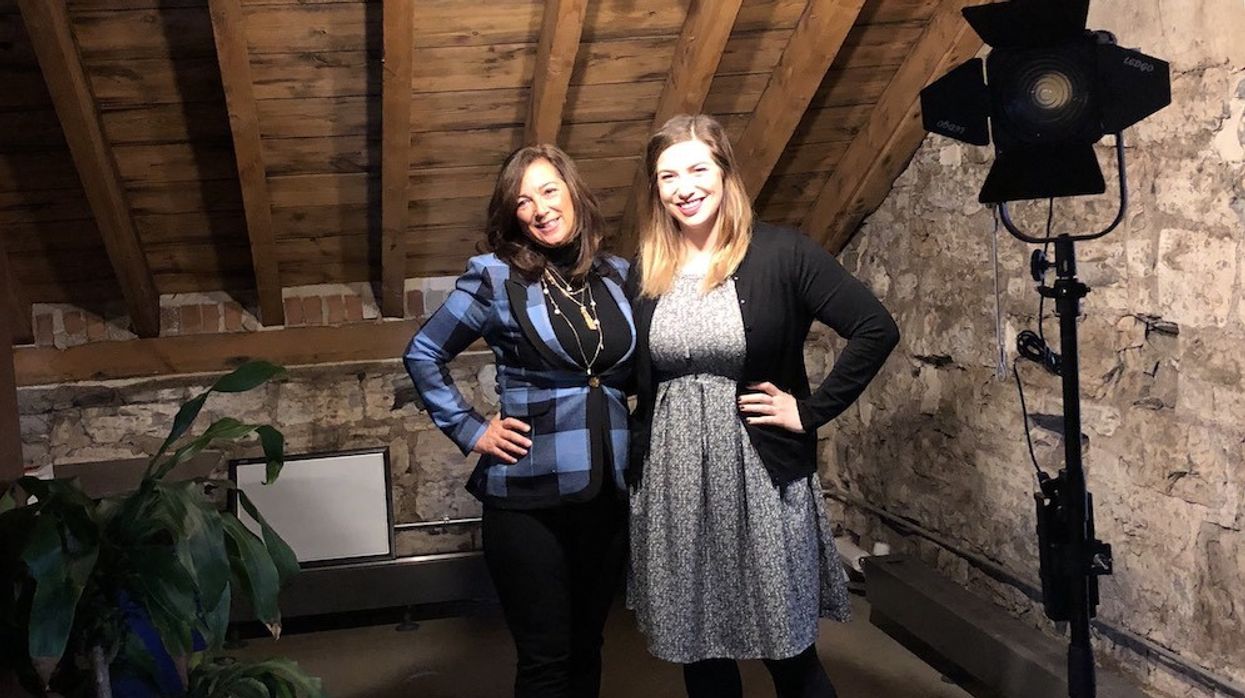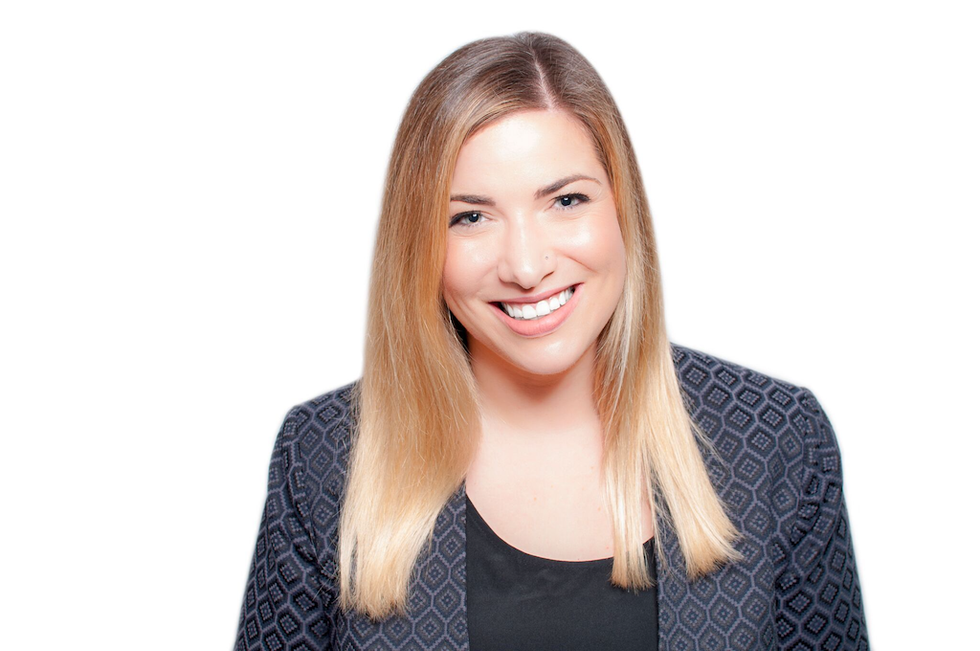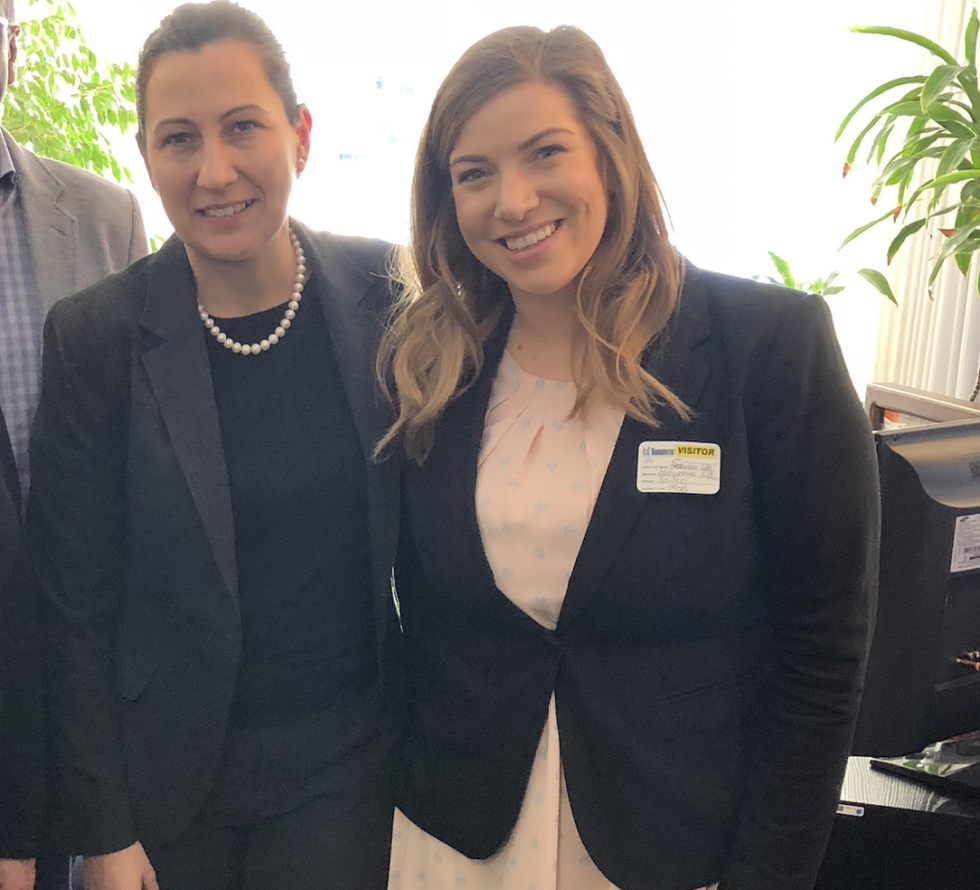Alexandra Cote's introduction to real estate was “a happy accident.”
While in grad school to become a life coach, she was also looking for work. It was then that the big fan of HGTV's Property Virgins, and its host Sandra Rinomato, saw a fortuitous ad on Craigslist.
Rinomato was looking for a part-time administrator for her Toronto brokerage.
“It was crazy. The ad was only up for one hour because they got so many responses. It kind of felt like destiny. I saw it in the one hour that it was up. And I'm such a big fan of hers,” says Cote.
Still crazier, a client she was coaching happened to be Rinomato's yoga instructor.
“He was like, 'Oh, I'll bring you to the interview and give you a warm introduction,'” Cote recalls.
Needless to say, she got the job and the rest ... is history.
But she didn't completely abandon her schooling either. Instead, Cote pioneered the term, “Property Coach.”
So we had to talk to the Property Coach to find out how she was voted Best Realtor — and how she would coach you when it comes to Toronto real estate. (And, of course, we had to find out what it's like to work with Sandra Rinomato.)
How did working with Sandra Rinomato make you a lifer in the industry?
Sandra was such an amazing mentor to me.
She said, “Listen, I know you want to finish your studies and are really serious about school, but I really think you should consider a career in real estate. I think there's an opportunity to apply what you've learned in this industry and carve a new path into it.”
I took her advice and that's how I ended up in real estate.
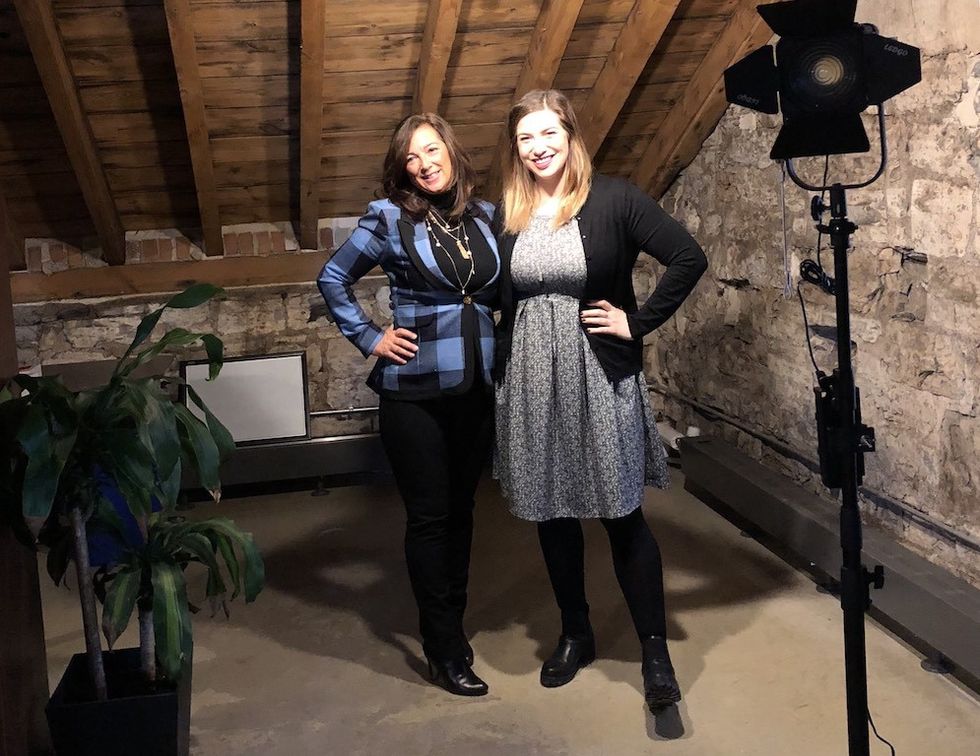
You brand yourself as a “Property Coach.” Explain what that is.
I'm a regular real estate agent, but I bring another layer of coaching. Just to be able to support the emotional investment and the emotional process of trying to buy or sell a home in this market, as much as the real estate and financial side of things.
I think I'm the only one doing this. And I went through rigorous training. I didn't just take a weekend course online. And I have a background in human relations as well.
Sometimes I use those skills a lot, but it really depends on the client. Some clients just care about the numbers and don't want to get into the touchy-feely stuff, but I work a lot with women who buy real estate on their own. For them, I build that relationship, help them through the emotional process and explore any obstacles, including managing family that comes into the process and other people's opinions.
Depending on the client, I talk a lot about goal setting and expectations. I really try to focus on the why — why that's motivating them. Because buying in this market is so difficult and can be such an emotionally taxing experience.
It's funny because other realtors in my office tell me, “I had another client cry and I didn't know how to handle it.” And I'm like, “Oh, most of my clients cry.”
But that's okay because I make them feel like they can and it's a safe space. We really build a lot of trust. And I've become friends with a lot of my clients just because we go through a lot together.
So what do you actually do to help people process their emotional obstacles around buying or selling a home?
Usually it's as much as having a conversation about it. It's really about reading the situation. I check in with my clients. A lot of times I'll schedule a call and just be like, “Let's pause and reevaluate where we are.”
It's just about conversation, really exploring and taking the time to talk about the process, not just the property.
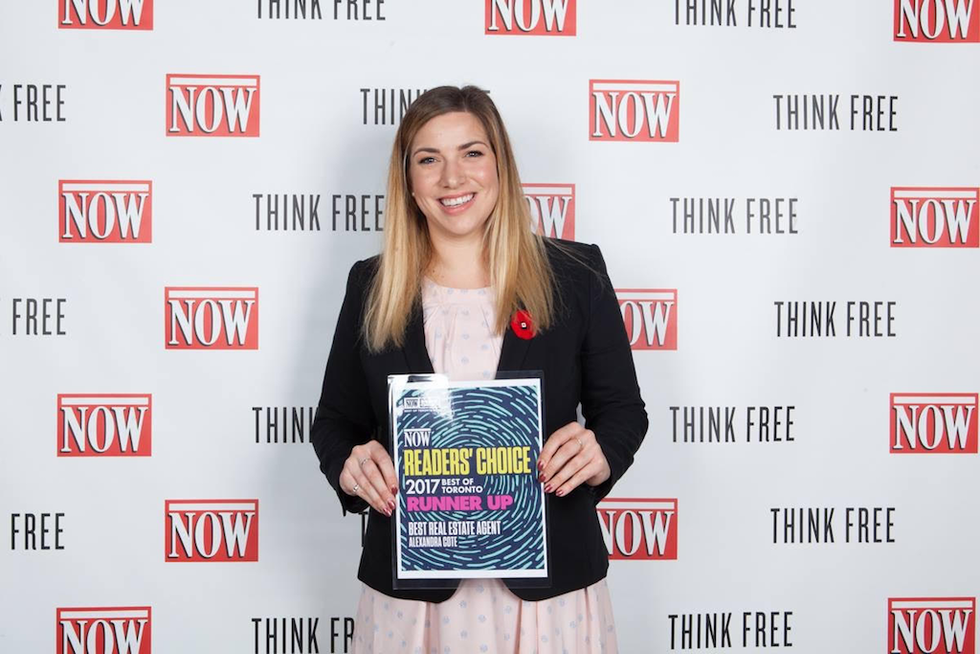
Do you think your approach gives you an advantage over other realtors in the Toronto market?
I definitely think so. I'm fortunate that my business is 100 per cent referral and repeat clients. So I don't really advertise beyond the basic social media stuff that I have.
I have a really strong connection with my base. And because of that I won “Best Real Estate Agent” in the NOW Magazine Reader's Choice Awards in 2016. I won the first year the category was open and then last year I was runner-up.
I just had a huge groundswell of support for that and I'm hoping to try to reclaim the title again this year.
Did NOW or any of the people who voted for you tell you why you won?
The feedback that I get is just that they really appreciate the amount of time and dedication.
They thought that I was always there for them, available to them and supported. I don't disappear after the transaction. I keep in touch with people and I check in. So clients feel that they can ask me any kind of question and keep in touch.
It really is a friendship that develops after the fact, so they're just enthusiastic.
They're excited about what I've helped them achieve and they want to have their friends and family experience what they experienced. I try to make the experience fun. It's not just a transaction for me.
Many agents say: “It's not about the transaction.” “I don't abandon my clients after the transaction.” Or, “I stay friends with my clients.” As someone who makes the emotional relationship with the client an explicit part of your business, have you noticed a trend towards your approach to doing business in the real estate industry?
I have and I haven't.
I recently did a panel at my brokerage where they had four different real estate agents talk about their approach. And I think some people are still very sales focused. I think like attracts like.
The clients that just want everything done efficiently without all the focus on the emotional process are not going to jive with me. They'll do better with a different realtor.
Sure, there's a bit of a trend towards lasting friendships and connection in this industry, but there are still a lot of agents who do very well with a different approach than me. I work with the people who want to work with me and if they don't that's fine too.
Plus, it's not like every single one of my clients go down that road. Maybe a third of my clients don't even know I'm a coach or have that training because it just isn't appropriate for our relationship. You don't always have to cry and talk about your problems with me.
And I see it as an opportunity to make some lasting change in that person's life.
The joke is always that realtors are like therapists. But I actually am.
You're also part of the Government Relations Committee on the Toronto Real Estate Board. What is it like to try to influence real estate policy in this city on a ground level?
I find it extremely rewarding just because I feel like I'm doing something.
I'm trying to fight the good fight and make sure that politicians and policymakers have the best information available when they make changes. We've had some successes and we've had other times where they don't necessarily listen to us.
But feeling like I'm trying and really getting an understanding of their end of things, really helps create a holistic understanding of the market. Where it's going. And how it's evolving.
This way, when I'm providing advice on the market — and not just the emotional component of the transactions — I can really feel I have that breadth of knowledge as well. I can talk about what's coming and how the GTA could evolve over the next 30 years — that part is really important too.
I'm a bit of a nerd in that way.
So what is your insider's take on the Toronto market, knowing what you know?
I think every change that has been enacted is coming from the right place.
Politicians are onside with us in terms of creating more affordable housing and making the market more accessible. But even if their intentions are good, the result isn't always as they intend.
For example, I'm against rent controls because they make things more unaffordable, not affordable. And if you look at the last year where the average one-bedroom condo went up $200 a month ... So I look at that and I'm like okay, I know your heart is in the right place, but the consequences of your actions will have the opposite effect that you want.
